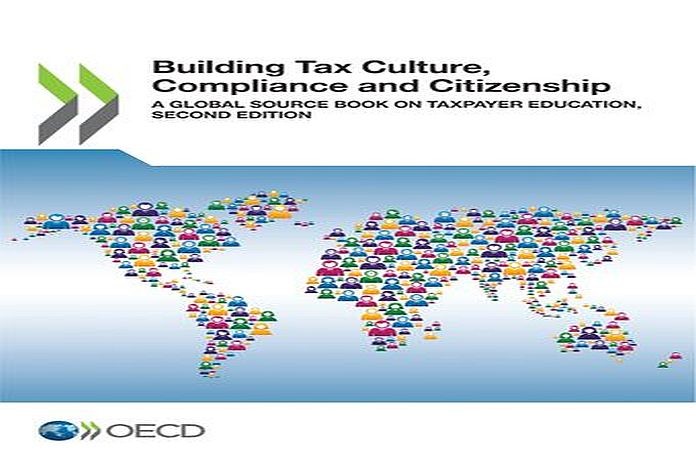PARIS, France – Raising sufficient tax revenues remains a major challenge for many countries, especially in light of the impacts of the COVID-19 pandemic. Taxpayer education can be a key tool to boost the willingness of individuals and businesses to voluntarily pay tax, and play a vital role at the heart of mobilising the tax revenues urgently needed to help achieve the Sustainable Development Goals, according to a new OECD study.
The second edition of Building a Tax Culture, Compliance and Citizenship: A Global Source Book on Taxpayer Education analyses a unique dataset of 140 taxpayer education initiatives deployed in 59 developed and developing countries around the world, offering a classification of different approaches to taxpayer education, and identifying common challenges and solutions. With over 80 percent of taxpayer initiatives reported to generate an improvement in tax morale – the intrinsic motivation to pay taxes – the study shows that increasing tax literacy can play an active role in shaping a country’s tax culture, in which citizens understand the effects of paying (or not paying) taxes on their daily lives.
The report also provides a step-by-step process to help tax authorities and other stakeholders in designing and implementing taxpayer education initiatives tailored to local realities. While taxpayer education can take various forms, the report identifies three main approaches:
- Teaching tax, through in-depth, often long-term engagement with all types of audiences, whether young people, adults or entrepreneurs.
- Communicating tax, through higher-level awareness-raising engagement with taxpayers. Such initiatives span social media campaigns, tax fairs and TV shows. They also include more scientific approaches drawing on behavioural economics to tailor communications to encourage positive responses.
- Supporting tax compliance by providing practical and direct assistance to taxpayers to facilitate the use of modern e-administration tools and to support taxpayers, especially vulnerable taxpayers, in their tax obligations, including reporting requirements.
Educating taxpayers is not just the business of tax administrations. Many of the initiatives presented in this study demonstrate the value of effective partnerships with other stakeholders such as schools, business associations and non-governmental organisations.
“Effective tax systems rely on high levels of voluntary compliance; increasing the understanding of how taxpayer education tools can impact directly on the willingness of taxpayers to comply voluntarily can help countries raise the revenues they need to achieve the Sustainable Development Goals and build trust in the fairness of the tax system”, said Grace Perez-Navarro, Deputy-Director of the OECD Centre for Tax Policy and Administration.
This report is part of a broader OECD work stream on tax morale, which is compiling new data to shed light on the factors affecting tax morale, and encourage further research and discussion, especially in respect to developing countries.
To access the report visit.







